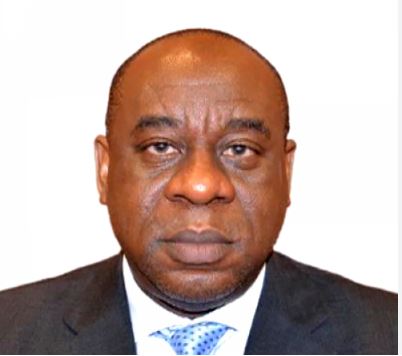
Stakeholders in the financial sector, on Wednesday, said the new corporate governance rules issued by the Central Bank of Nigeria were fitting responses to the recent developments in the banking sector.
They disclosed this in separate interviews with The PUNCH.
The CBN recently introduced new guidelines in a circular to all commercial, merchant, non-interest and payment service banks, and financial holding companies, titled ‘Corporate Governance Guidelines’, which was signed by the Director, Financial Policy and Regulation Department, Chibuzo Efobi.
In the guidelines, the CBN extended the tenure of the managing directors of banks to 12 years, prohibited having more than two members of an extended family on the board of a bank and stated that the acquisition of up to five per cent stake in a financial holding company would require the central bank’s approval.
Commenting on this, Prof Olawale Ajai of the Lagos Business School, said though the CBN’s new guidelines seemed adhoc, they were timely.
“Although the guidelines appear adhoc and piecemeal, they are fitting responses to challenges and developments in the industry. The fact that they are soft laws suggest that they do not represent the final position and are meant to side-step any contention of colourable attempt to override BOFIA 2020,” he said.
He pointed out that one of the objectives of the banking consolidation of the CBN was to terminate what he described as “papa and mama” banks, or closely held family bank businesses.
“It did not seek to and could not eliminate closely held controlling shareholding or groups, a natural possible outcome of market consolidation. Yet, BOFIA 2020 has provisions to minimise the corporate governance risks from such developments,” he stated.
The professor, however, urged the regulator not to stifle or micromanage shareholders’ democracy and legitimate market capitalism.
“It (regulator) must always have the latitude to check anticompetitive practices, monopolism, speculators and ‘dark wolves’ (operators with tainted funds or crass corporate raiders).
“The new guidelines should allow for flexibility and exercise of legitimate liberal market capitalism in keeping with the rule of law. The CBN must avoid using power to pursue adhominem policies against specific individuals, however,” he stated.
Speaking with our correspondent on the matter, the Chief Executive Officer, Enterprise Stockbrokers, Rotimi Fakayejo, said the extension of the tenure and restrictions on ownership of controlling stakes in FHCs were needed.
He said, “Before Lamido Sanusi became the CBN Governor, the tenure was open. The bank MD was there until the board or he decide to retire. When Sanusi came, he brought the cap of 10 years, though some people complained.
“The reason was that there were some executive directors who got to that position early enough; say somebody became an ED at the age of 38, 40, at 50, you are telling him to pack his bags when he’s very much productive and active. I feel this will be good for the banking sector and a needed adjustment.”
On the requirement of the regulator’s approval, Fakayejo pointed out that if there were no shady funds involved, then no one should hesitate to approach the CBN for approval.
“I don’t see anything new in that. If somebody is coming clean, there is nothing to fear. It will lead to better corporate governance. To me, it is a very good development. It will sanitise the system.”
He added, “I think CBN is just trying to mitigate a situation where there is a tussle with the ownership and directorship of a firm. If you look at FBN Holdings, I think a year or two ago, Oba Otudeko was asked to leave the board of FBN Holdings and he left and all of a sudden, he’s back and claiming to own 13 per cent.
“Immediately, I saw that development, I wondered why it should be so. All these years, he didn’t say he owned the shares even when they told him to leave the board. But suddenly he’s claiming the shares. CBN, the stock exchange, Securities and Exchange Commission should ask CSCS to find out how the consideration for the purchase of those shares was made. Secondly, who owned those shares before now? Were they held by proxies? Were they bought in the days of public offers?
“Was there an exchange of consideration? If there are not there at the inception of the bank as an owner and you are going to own more than five per cent, CBN should give approval.”
For the former President of the Chartered Institute of Bankers of Nigeria, Prof Segun Ajibola, the extension of the tenure of bank MDs was unnecessary.
“Why the extension?” Ajibola asked. “It’s been 10 years and there was a time they wanted to reduce the number of years. Maybe for stability, continuity, experience and expertise but I can’t see any reason for the extension. To me, what can be achieved in 12 years can also be achieved in 10 years.”





